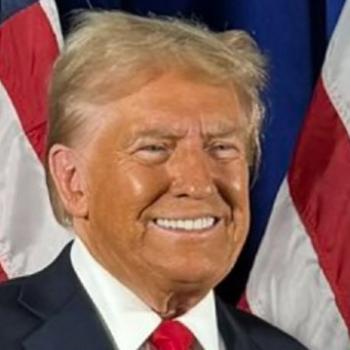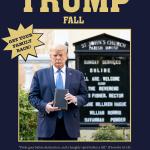Some interesting comments today in a triple play from Atrios to Kevin Drum over to Brad DeLong and back to Atrios, 6-4-3-6.
The subject is "wonkery" — which is to say the continuing relevance or irrelevance of debating policy on the merits of that policy. Here's a summary:
Atrios: I've declared "the age of wonk" has been over for some time. There's little point in having serious policy debates about anything.
Kevin: I happen to love policy wonkery, but I feel the same way. … I mean, I keep doing it because I can hardly bear to admit that it doesn't make any difference anymore, but as near as I can tell nobody in power cares two cents about actual policy these days. It doesn't matter whether something actually works better or worse than some other thing, only whether or not it helps your own team.
Brad: It has not always been like that. It was not like that in the Clinton administration. It was not like that as far as foreign policy was concerned in the Bush I administration when Brent Scowcroft ran the National Security Council. It was not like that in the Ford administration.
And, even today, policy wonkery is still absolutely vital within the Democratic-Independent sphere. It's only the Republicans who are a lost cause.
It's very important that we continue to think and plan — to seek truth from facts, as it were.
Atrios: He's right. It has not always been like that. …
But during the 2000 election, the press got stupid and declared it all too complicated to understand. Regarding Bush and Gore's budget numbers, which were clear as day for all to see, Ted Koppel remarked on Larry King "You know, honestly, it turns my brains to mush. I can’t pretend for a minute that I’m really able to follow the argument of the debates. Parts of it, yes. Parts of it, I haven't a clue what they're talking about." There was outward hostility not only to the notion that candidates would gain supporters by talking policy seriously (a longtime press CW), but outward hostility to the notion that policy mattered at all. …
Now there is only partisanship. Everything is viewed entirely through that lense. All policy proposals are pandering, and all differences one of appeal not substance.
All of which calls to mind this observation from Evelyn Waugh:
"Politicians are not people who seek power in order to implement policies they think are necessary. They are people who seek policies in order to attain power."
President George W. Bush has repeatedly asserted that he does not pay attention to polls. (He has also repeatedly cited those same polls — although I'm sure that Bush's defenders can offer elaborate rationales to explain why this repeated brazen contradiction does not constitute an actual "lie.")
The point of this impossible-to-reconcile-with-his-own-statements-elsewhere blather about "not listening to polls" is an attempt to portray himself as a principled leader — the kind of person that Waugh says politicians are not. He is attempting, in other words, to portray himself as someone who seeks power in order to implement policies he thinks are necessary rather than as someone who simply latches on to whatever policies he thinks will help him to attain and retain power. (Steel tariffs, anyone? Mars mission?)
Bush's attempts to portray himself in this light fail for two reasons.
First, the nature of the constituency to which Bush is pandering is different than it was in Waugh's time due to the increased importance of campaign money in contemporary politics. Consider almost any piece of legislation promoted by the Bush administration and you will find policies whose main virtue is that they pander to constituents the administration thinks will help them retain power. Yet those constituents are not voters — not the public in general. They are donors. And the policies advocated by the Bush administration often benefit these donors to the detriment of the majority of voters (e.g. Cheney's energy plan, a Medicare reform package that makes it illegal to negotiate lower prices for prescription drugs).
In an earlier age, a pandering politician pandered to the voters. He might be completely unprincipled, but at least he was, more or less, heeding the will of the electorate. These days, politicians pander to donors in the hopes that doing so will raise enough money — $200 million! — to buy enough airtime and ad time to convince voters that they are at least better than the irredeemably evil straw man they are running against.
Consider the difference between George W. Bush and former Rep. Bud Shuster (R-Pa.). Shuster was haunted by suspicions of corruption and he seemed largely unprincipled — motivated entirely by porkbarrel politics. Yet at least the people of Altoona got some quality jobs building those turnpike offramps to Shuster's relatives' restaurants. And the roads around Altoona are very, very nice. Bush is like Shuster, only we don't even get the highways and the patronage jobs.
But the second and more important reason that Bush's anti-poll posturing fails to portray him as someone "who seeks power in order to implement policies he thinks are necessary" is that he seems unable to answer the question "'Necessary' for what?"
I've titled this post "The End of Wonkery" not because "the age of wonk" is over, but because ultimately the relevance or irrelevance of policy — of means — has to do with the ends of that policy. What is wonkery for?
The possible answers pretty much boil down to two. It is either for the attainment of raw power, or else it is for the common good.
The common good is the end — the purpose — of wonkery. That's why President Bush has little patience for it.
















